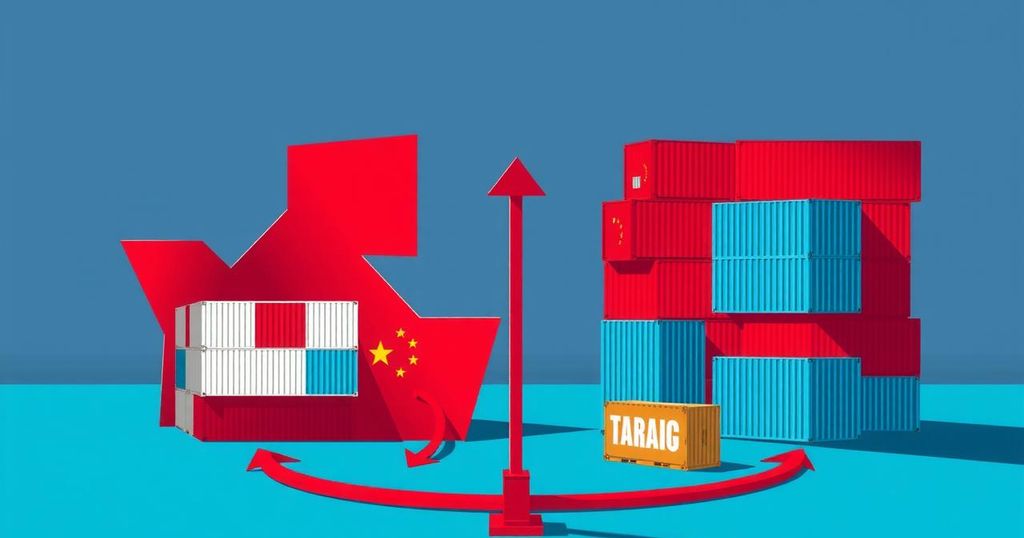Saudi Arabia’s Evolving Diplomacy: A Pragmatic Shift towards Global Influence
Diplomatic talks hosted in Saudi Arabia marked a significant shift in the Kingdom’s global role, emphasizing transactional relationships in U.S. foreign policy. Saudi Arabia insists on a comprehensive two-state solution as essential for normalization with Israel, while seeking regional stability to unlock economic potential. The current geopolitical landscape encourages pragmatic dialogue, with a clear focus on mutual interests and justice for Palestinian rights being nonnegotiable.
This week, significant diplomatic discussions occurred at Riyadh’s Ritz-Carlton involving Russian and American officials, along with Ukrainian representatives. The agenda centered on a potential limited ceasefire in Ukraine and maritime safety in the Black Sea. These negotiations, strategically held in Saudi Arabia, reflect the Kingdom’s ambition to elevate its status from a regional player to a global diplomatic leader.
Steve Witkoff’s candid remarks in an interview with Tucker Carlson shed light on America’s shifting power dynamics, emphasizing that nations such as Saudi Arabia must adjust accordingly. The era of prioritizing human rights in diplomatic relations is diminishing, replaced by a focus on tangible transactionalism, where mutual interests and security collaborations take precedence. This new approach invites clearer objective definitions and negotiations that tangibly benefit all parties.
Witkoff acknowledged Saudi Arabia’s unwavering stance on Palestinian rights as a precondition for normalization with Israel, stating that peace in Gaza is essential. However, his comments overlook the Kingdom’s broader requirement for a genuine two-state solution, indicating a deeper misalignment in understanding what Saudi Arabia seeks. The Kingdom insists on a comprehensive resolution, moving beyond temporary measures to ensure lasting peace in the region.
For successful normalization, the United States and Israel must accept and actively implement a viable two-state solution. Furthermore, Washington must offer substantial assurances that Israel will adhere to these agreements in practice. Without these foundational commitments backed by effective enforcement, Saudi involvement transforms into an unattainable diplomatic aspiration.
Witkoff’s observations regarding the economic potential of the Gulf region suggest that peace could unlock unprecedented opportunities, possibly exceeding Europe’s economic impact. As Saudi Arabia advances its Vision 2030, regional integration stands to deliver significant advantages, uniting the GCC states in technology and innovation sectors. However, achieving this potential hinges on establishing stability rooted in justice.
Additionally, Witkoff highlighted the economic implications behind security agreements. A security framework is necessary not solely for military defense but to assure financial viability, making capital more affordable and facilitating development. This insight is pivotal for Saudi Arabia as it seeks to attract global investment while fostering an economically sound environment.
The generational leadership shift in the region fosters optimism for collaboration among younger leaders who prioritize economic growth over entrenched ideologies. Saudi policymakers should thus note three key takeaways: 1) Washington perceives peace as necessary for normalization, albeit misinterpreting Saudi prerequisites; 2) regional stability’s economic advantages can drive Vision 2030, emphasizing justice in security arrangements; and 3) meaningful American engagement is crucial to hold Israel accountable for a viable two-state solution.
The events in Riyadh signify Saudi Arabia’s heightened role as a mediator in complex geopolitics. The Kingdom’s strategic positioning affords it a unique opportunity to engage pragmatically while steadfastly advocating for Palestinian rights and a sustainable two-state solution. This vision for a cooperative Middle East, as Witkoff encapsulated, could yield economic potential surpassing Europe’s, contingent upon the establishment of foundational equity and fairness. Thus, Saudi Arabia’s consistent stance remains clear: normalization demands a comprehensive two-state agreement, supported by credible American assurances for implementation.
In conclusion, Saudi Arabia’s evolving diplomatic role reflects its ambition to assert greater global influence while navigating the complexities of regional politics. The Kingdom’s insistence on a comprehensive two-state solution as a basis for normalization with Israel highlights the importance of justice in any future negotiations. Furthermore, as reinvigorated discussions around security and economic cooperation unfold, it becomes imperative that U.S. support aligns with these foundational prerequisites to achieve meaningful and lasting stability in the region.
Original Source: www.eurasiareview.com








Post Comment